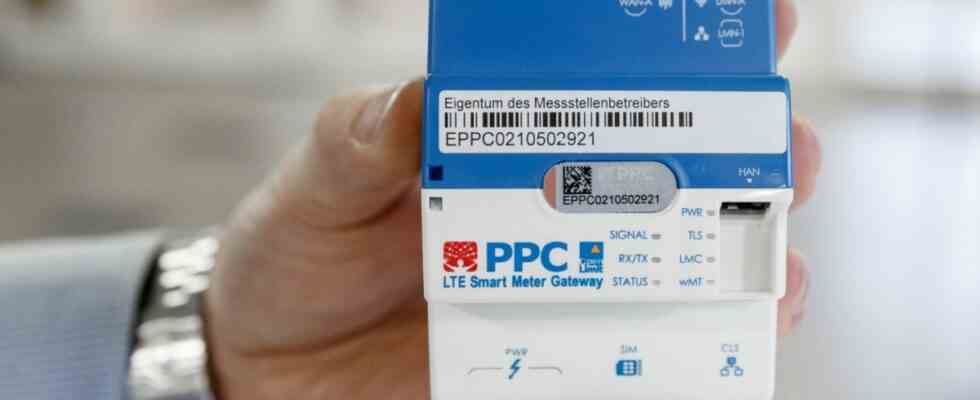Economics Minister Robert Habeck (Greens) wants to massively accelerate the installation of intelligent electricity meters in private homes. According to information from ministry circles, this emerges from a draft law that was sent to the other departments of the government on Wednesday evening. Accordingly, the reform is intended to create the conditions for energy generation, storage and consumption to be precisely coordinated in the future. This is essential in view of the increased use of energy sources that are susceptible to fluctuations such as wind and sun, the growing number of decentralized energy producers and storage systems, and the increasing combination of electricity, heating and transport infrastructure.
Compared to other European countries, Germany lags far behind when it comes to installing so-called smart meters, because in the past there have repeatedly been bureaucratic hurdles and the competent authorities obsessed with technical details. Security concerns also played a role, because it could not be ruled out that there could be cyber attacks on smart meters and thus indirectly on the entire power grid. That’s why most basements still have chunky black devices with turntables and counters like they were almost 100 years ago.
The price for using the smart meter should be capped at 20 euros per year. In the circles, however, it is emphasized that people would save more money than they would spend because in future they would know much more precisely which electrical device in the household consumed how much energy and what electricity costs at a certain time. With the help of intelligent meters, heat pumps can be switched off, for example, when little electricity is available and the price is correspondingly high. The owner of an electric car, on the other hand, can charge his battery at night instead of after work, when electricity is very cheap. Conversely, the e-cars can be tapped into as an electrical source via smart meters if more electricity is needed in the house. At the same time, the network operators receive the information they need for needs-based expansion and optimal use of the network capacity.
According to the draft law, smart meters should be standard in all German households within ten years. The old meters are usually replaced after the calibration period has expired. At the same time, all providers must offer their customers flexible electricity tariffs from 2026.

